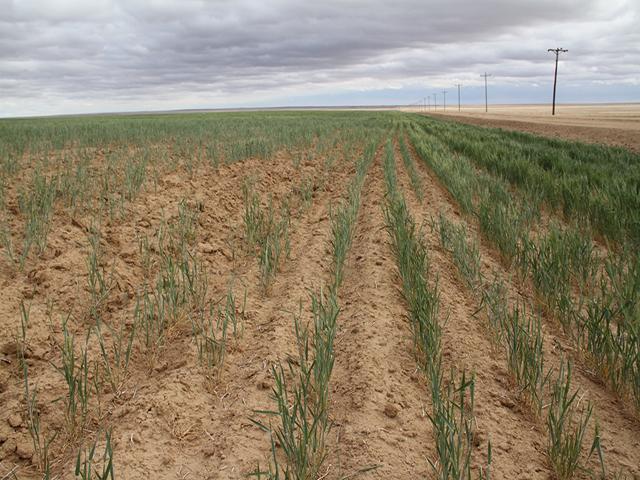Ag Policy Blog
Western Senators Say More Farm Bill Tools Are Needed to Cope With Long-Term Drought
A bipartisan group of 16 U.S. senators representing ten western states on Thursday called on the leaders of the Senate Agriculture Committee to provide more resources to address long-term drought challenges in the region.
The senators drafted the letter after conversations with Senate Ag committee staff have left them "concerned that drought provisions are at risk of not being included in the farm bill, a Senate staffer informed DTN.
"Drought remains a severe risk for American farmers and ranchers and threatens farmland and local economies that rely on dwindling water resources," the western-state senators wrote. "We must ensure that any multi-year farm bill adequately addresses the heightened production risks posed by a hotter, drier future, particularly in states West of the 100th meridian."
The 100th meridian cuts through North Dakota down through Plains states and Texas.
The senators stated agriculture is the economic backbone for their rural communities. "However, severe, long-term drought is devastating these rural areas. During periods of droughts, our farmers and ranchers face diminishing crop and livestock outputs. These negative effects reverberate through the community, affecting not just individual producers, but the broader local economy and food system."
Driven by climate change, droughts are also becoming "more frequent, longer, and more severe." Since 2000, the Western United States has experienced some of the driest conditions on record and the American Southwest, in particular, continues to suffer an unprecedented period of extreme drought, the senators wrote.
The senators said drought conditions have altered the landscape in the region. "This urgently requires Congress to invest in water and agricultural resilience. While drought conditions eased in many states this year, we cannot become complacent when our farmers and ranchers are in severe need of an appropriate drought safety net that ensures their long-term resiliency."
P[L1] D[0x0] M[300x250] OOP[F] ADUNIT[] T[]
Western farmers and ranchers need more resources to help conserve water, improve watershed scale planning, upgrade water infrastructure and protect the land from erosion.
The farmers and ranchers in western states need a farm bill that provides support to conserve water, improve watershed scale planning, upgrade water infrastructure, protect land from erosion to help create more long-term resiliency to extreme drought conditions, the senators stated.
The letter was led by Sen. Michael Bennet, D-Colo., along with Deb Fischer, R-Nebraska. The letter also included Sen. John Hickenlooper, D- Colorado; Republican Sens. Mike Crapo and Jim Risch of Idaho; Arizona Democratic Sen. Mark Kelly and independent Kyrsten Sinema; Sen Jerry Moran, R-Kansas; Democratic Sens. Jacky Rosen and Catherine Cortez Masto of Nevada;
Sens. Alex Padilla and Laphonza Butler, both Democrats from California; Sens. Ron Wyden and Jeffrey A. Merkley, both Democrats from Oregon; Sen. Patty Murray, D-Wash.; and Democratic Sens. Ben Ray Lujan and Martin Heinrich of New Mexico.
Last year, Bennet, Fischer and Merkley introduced the Healthy Watersheds, Healthy Communities Act to help American agriculture and communities become more resilient to drought and flooding by boosting the Natural Resources Conservation Service's (NRCS) Watershed and Flood Prevention Operations program (also known as "PL-566").
The senators see PL-566 as a program that can help states develop more watershed projects in their state to help manage drought conditions.
Also see, "Advocates Seek to Plug USDA Watershed and Flood Dams Into Rural Infrastructure Debate,"
Chris Clayton can be reached at Chris.Clayton@dtn.com
Follow him on X, formerly known as Twitter, @ChrisClaytonDTN
(c) Copyright 2024 DTN, LLC. All rights reserved.






Comments
To comment, please Log In or Join our Community .